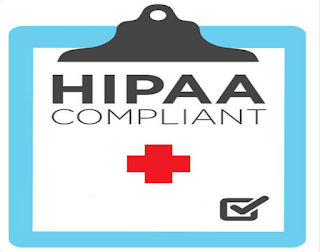Understanding HIPAA Compliance: Protecting Sensitive Healthcare Information
The National Institute of Standards and Technology (NIST) is a federal agency that develops and promotes technology standards to improve the security and privacy of sensitive information. NIST compliance is a set of guidelines and security standards that organizations must follow to ensure the confidentiality, integrity, and availability of their data.
NIST compliance is important for
businesses that handle sensitive information, such as healthcare, finance, and
government agencies. Compliance with NIST standards helps to protect against
data breaches, cyber attacks, and other security threats. It also helps
organizations to meet legal and regulatory requirements, such as HIPAA and PCI
DSS.
 |
| HIPAA Compliance |
To achieve NIST compliance,
organizations must implement a range of security controls, including access
controls, encryption, and vulnerability management. They must also conduct
regular risk assessments and ensure that their security policies and procedures
are up-to-date and effective.
Overall, NIST compliance is an essential
component of data security for any organization that handles sensitive
information. By following NIST guidelines, businesses can protect their data
from cyber threats and ensure that they remain compliant with legal and
regulatory requirements.
Understanding HIPAA Compliance
HIPAA (Health Insurance Portability
and Accountability Act) is a set of regulations that aim to safeguard sensitive
healthcare information from unauthorized access, use, or disclosure. The act
applies to healthcare providers, insurance companies, and other entities that
handle protected health information (PHI). HIPAA compliance is
essential to ensure the confidentiality, integrity, and availability of PHI,
and to avoid costly penalties and legal consequences.
To achieve HIPAA compliance,
organizations must implement a range of administrative, physical, and technical
safeguards, such as access controls, encryption, and regular security
assessments. They must also train their employees on HIPAA regulations and
ensure they follow best practices for handling PHI.
Non-compliance with HIPAA regulations
can lead to serious consequences, including fines, legal action, and damage to
an organization's reputation. In addition to the financial and legal risks,
breaches of PHI can have severe consequences for patients, including identity
theft and exposure to medical fraud.



Comments
Post a Comment